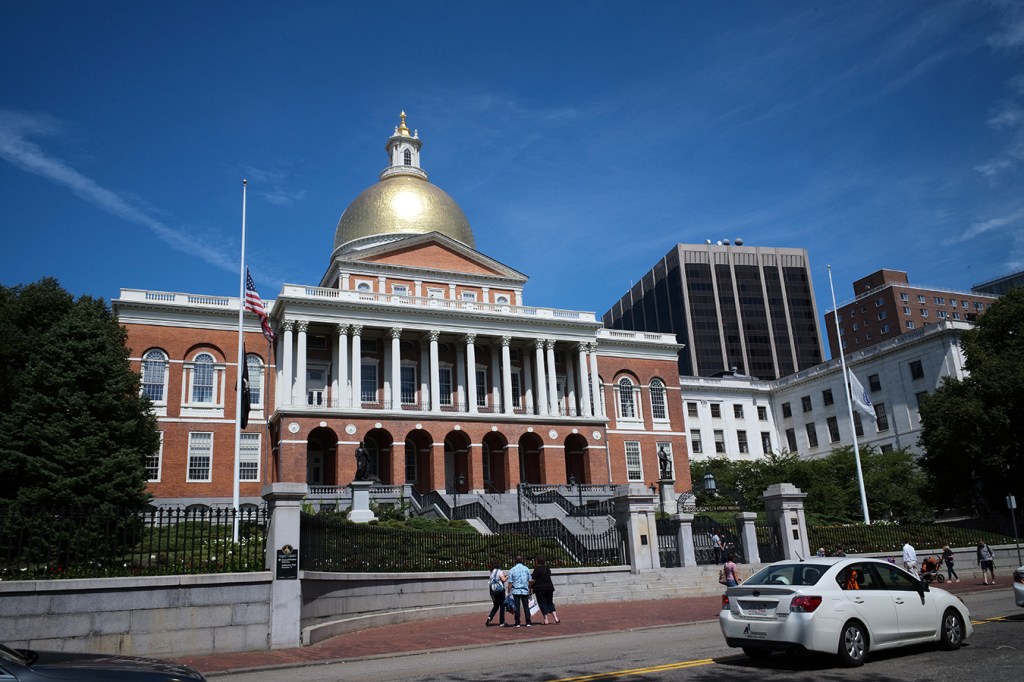States serve as “laboratories of democracy,” as U.S. Supreme Court Justice Louis Brandeis famously said. And states are also labs for health policy, launching all kinds of experiments lately to temper spending on pharmaceuticals.
No wonder. Drugs are among the fastest-rising health care costs for many consumers and are a key reason health care spending dominates many state budgets — crowding out roads, schools and other priorities.
Consider Vermont, California and Oregon, states that are beginning to implement drug price transparency laws. In Nevada, the push for transparency includes the markup charged by pharmacy benefit managers (PBMs). In May, Louisiana joined a growing list of states banning “gag rules” that prevent pharmacists from discussing drug prices with patients.
State-based experiments may carry even greater weight for Medicaid, the federal-state partnership that covers roughly 75 million low-income or disabled Americans.
Ohio is targeting the fees charged to its Medicaid program by PBMs. New York has established a Medicaid spending drug cap. In late June, Oklahoma’s Medicaid program was approved by the federal Centers for Medicare & Medicaid Services to begin “value-based purchasing” for some newer, more expensive drugs: When drugs don’t work, the state would pay less for them.
But around the same time, CMS denied a proposal from Massachusetts that was seen as the boldest attempt yet to control Medicaid drug spending.
Massachusetts planned to exclude expensive drugs that weren’t proven to work better than existing alternatives. The state said Medicaid drug spending had doubled in five years. Massachusetts wanted to negotiate prices for about 1 percent of the highest-priced drugs and stop covering some of them. CMS rejected the proposal without much explanation, beyond saying Massachusetts couldn’t do what it wanted and continue to receive the deep discounts drugmakers are required by law to give state Medicaid programs.
The Medicaid discounts were established in 1990 law based on a grand bargain that drugmakers say guaranteed coverage of all medicines approved by the Food and Drug Administration in exchange for favorable prices.
The New England Journal of Medicine dives into the CMS decision regarding Massachusetts and its implications for other state Medicaid programs in a commentary by Rachel Sachs, an associate professor of law at Washington University in St. Louis, and co-author Nicholas Bagley. They dispute the Trump administration’s claim that Massachusetts’ plan would violate the grand bargain.
We talked with Sachs about Massachusetts’ proposal and the implications for the rest of the country. Her answers have been edited for length and clarity.
Q: Why do you think states, such as Massachusetts, should be allowed to exclude some drugs, a move the pharmaceutical industry has said would break the deal reached back in 1990?
In our view, there’s a way to frame it where the bargain has been broken and Massachusetts is simply trying to restore the balance. The problem is that the meaning of FDA approval has changed significantly over the last almost 30 years. Now we have a lot more drugs that are being approved more quickly, on the basis of less evidence — smaller trials, using surrogate endpoints — where the state has real questions about whether these drugs work at all, not only whether they are good value for the money.
Q: You suggest that Massachusetts could make a reasonable case if it chose to challenge the CMS denial. How?
CMS did not explain why it didn’t grant Massachusetts’ waiver. It needs to give reasons for denying something that Massachusetts, in our view, has the legal ability to do. CMS’ failure to give reasons in this case resembles their failure to give reasons in a number of other cases that have recently led courts to strike down actions by the Trump administration for failure to explain the actions that they were taking.
(Note: A spokeswoman for Health and Human Services in Massachusetts says the state is not going to challenge the CMS decision.)
Q: While CMS blocked the Massachusetts experiment, it has approved the value-based purchasing plan in Oklahoma, and New York has capped its Medicaid drug spending. Aren’t those signs of flexibility for states?
In some ways, yes, and in other ways, no. New York passed a cap on state Medicaid pharmaceutical spending. But once the state hits that cap, it doesn’t mean the state will stop paying for prescription drugs. It just means the state is empowered to negotiate with some of these companies and seek additional discounts. They didn’t need CMS approval for this. New York doesn’t have the ability to say “If you don’t take this deal, we’re not going to cover this product.”
Oklahoma is pursuing outcomes-based pricing, which is of interest. It’s the first state to express interest in doing so. However, there are a lot of observers who are skeptical that outcomes agreements of this kind will materially lower prices or if they just provide companies cover to charge higher prices in the first instance.
Q: So what options do you see ahead for states given what happened in Massachusetts with the Medicaid waiver?
Unfortunately, states are quite limited in what they’re able to do on their own, in terms of controlling prescription drug costs — both costs that are borne by the state in its capacity as a public employer and its capacity as an insurer for the Medicaid population. and then more generally for the many citizens who are on private insurance plans throughout the state.
This is a real problem, this concern of federal pre-emption where states’ ability to go beyond federal law is often limited. So what we’re seeing now is more states like Massachusetts and Vermont taking action that forces the federal government to do something or say something. States are increasingly putting pressure on the federal government because they know that their ability to act on this problem of drug pricing is limited.
This story is part of a partnership that includes WBUR, NPR and Kaiser Health News.







